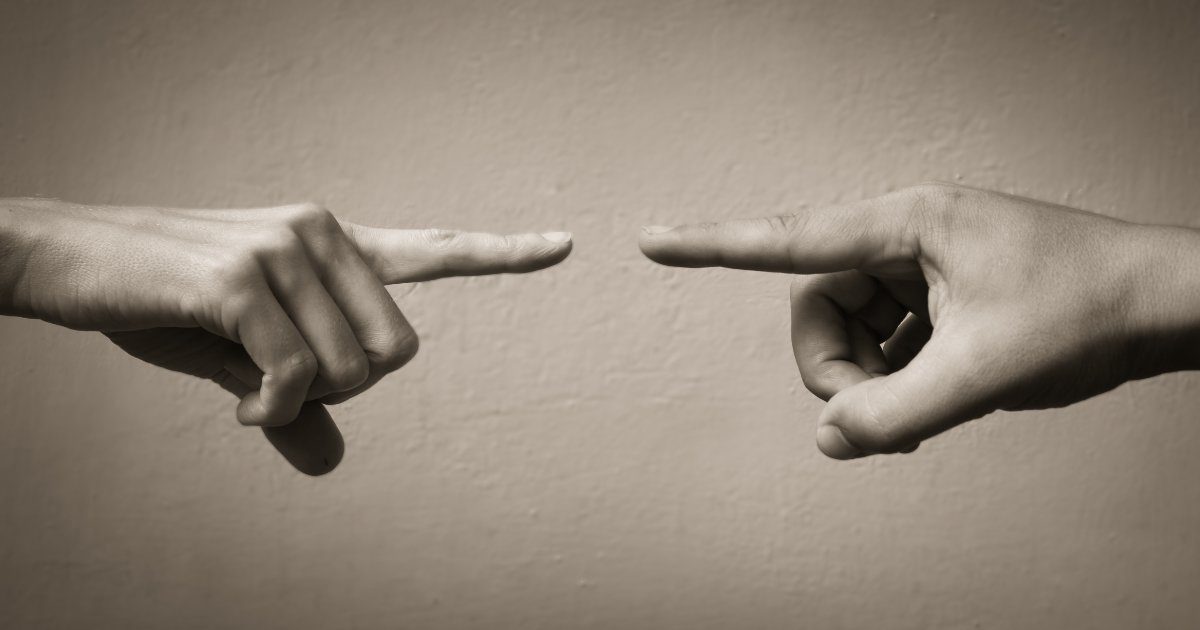At one time or another, we’ve probably all experienced a sense of blame. This could be resentment towards the people or circumstances in our lives for something we feel has wronged us. Or it may be blame for ourselves, for making mistakes or not acting as we think we should.
However it manifests, blame is a limiting force. Holding on to blame damages our wellbeing and causes conflict in our lives and relationships. Blame keeps us stuck in the past, re-living old stories and difficulty. And it creates a feeling of victimhood, robbing us of our sense of agency and strength.
Taking responsibility
This doesn’t mean we should condone or continue to live with unhealthy behaviour and situations. But there is an important difference between blame and accountability. Accountability is about allocating responsibility when something has gone wrong and learning from mistakes. Blame, on the other hand, is a negatively charged emotion focused on censure and reproach. While accountability helps us to cultivate clarity and to grow, blame locks us into unproductive feelings of anger, judgement and self-righteousness.
Letting go of blame requires us to take full responsibility for ourselves and our emotions. No matter what happens in our lives, we have the ability to choose our response. Recognising that we play a part in every situation we experience and that no-one and nothing can make us feel a certain way unless we allow it can liberate us. From this empowered place, we are able to view people and events with greater clarity and equanimity. This allows us to better learn the lessons needed and then to move on without holding on to the suffering and reactivity of blame. In this way, we can live with greater ease, relating more harmoniously to ourselves, each other and the world around us.
A healthier way forwards
Releasing blame takes commitment to changing our ways of thinking and responding. The following steps can all support this process:
- Create awareness
In order to let go of blame we need to look clearly at the situations in our lives, past or present, where this feeling is held. Writing or expressing in some way how blame shows up in our thoughts, emotions and physical sensations helps us to become aware of the ways in which it limits us. - Cultivate compassion
Compassion is a powerful tool that can help to alleviate suffering. Recognising that we are human and we all make mistakes allows us to be gentler with ourselves and others. This supports us to release judgement and let go of feelings of victimisation. Try viewing yourself with loving kindness and see if it is possible to extend this to others in the situation too. - Seek new perspectives
Releasing blame requires a shift in perspective. When we challenge ourselves to look at our own role in a situation or to see it from other angles, we can gain fresh insights. This enables us to step out of rigid thought processes and to begin to change the narrative of blame. - Look for the lesson
There is wisdom to be gained from all of our experiences. Finding the lesson in each situation helps us to become more conscious of ourselves and our interactions and better able to avoid painful circumstances next time. In this way, we can transform even our most challenging experiences into greater awareness and strength. - Focus on the future
Once we have recognised the lessons, it is important to look to the future. Focusing on positive solutions – whether actions or a simply a change in viewpoint – empowers us to let go of blame and take responsibility for creating the life we want to live.


Pingback: 9 Life-Changing Habits: Breaking Free from Toxic Behaviors for a Healthier You - Viral Chatter
Pingback: tadalafil over the counter
Pingback: best essays writing service
Pingback: online custom essays
Pingback: best website to get essays
Pingback: top essay editing service
Pingback: essay writing services singapore
Pingback: reviews of essay writing services
Pingback: instant essay writer
Pingback: tramadol from online pharmacy
Pingback: pharmacy online uae
Pingback: how long does tadalafil take to work
Pingback: sildenafil gel india
Pingback: cialis for sale in canada
Pingback: flagyl manufacturer
Pingback: gabapentin hypokalemia
Pingback: diltiazem er side effects
Pingback: acarbose manufacturer
Pingback: semaglutide 3 month results
Pingback: protonix withdrawal symptoms
Pingback: effexor price
Pingback: abilify dosage maximum
Pingback: amitriptyline used for
Pingback: what class of drug is robaxin
Pingback: ezetimibe triglycerides
Pingback: what is the medication remeron used for
Pingback: actos pharmacodynamics
Pingback: repaglinide uv
Pingback: tizanidine hcl 2mg street value
Pingback: venlafaxine and duloxetine
Pingback: que es spironolactone 25 mg
Pingback: plavix synthroid
Pingback: recommended dose of sitagliptin
Pingback: tamsulosin 0 8
Pingback: savings card for voltaren
Pingback: stromectol ebay